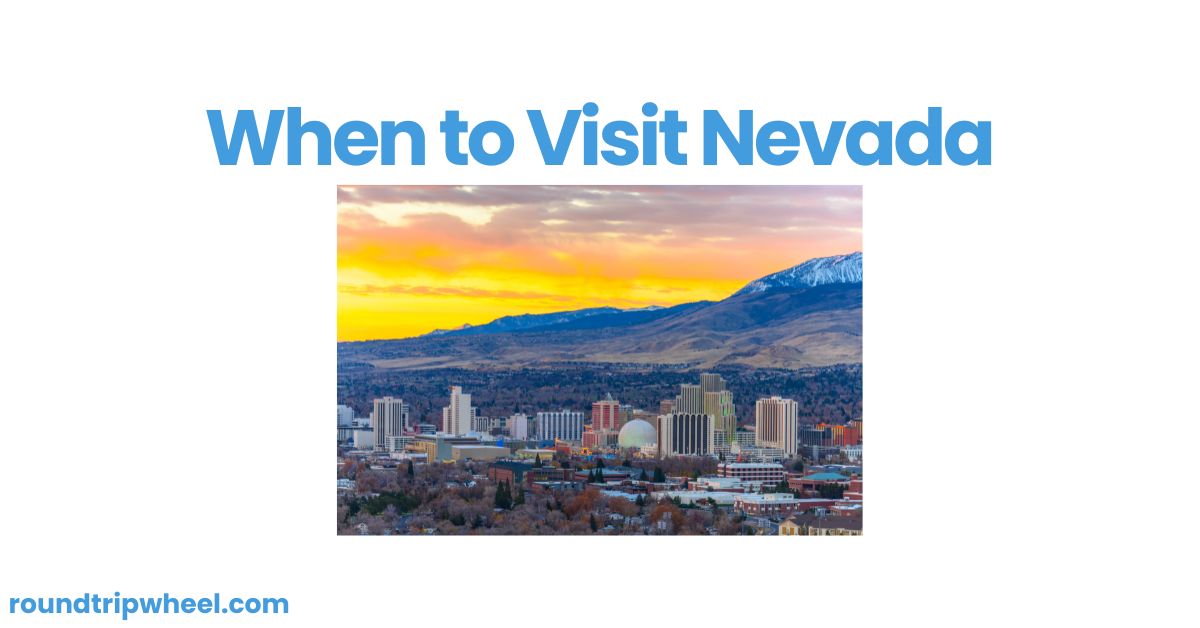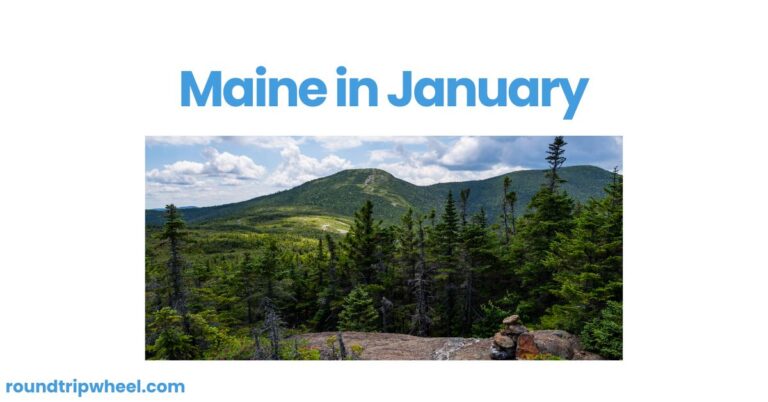When to Visit Nevada – Making the Most of Your Trip

Nevada is a state that offers a diverse range of experiences, from the glitzy lights of Las Vegas to the serene beauty of its national parks and natural landscapes. However, the timing of your visit can greatly impact your overall experience. Whether you’re seeking the excitement of the city or the tranquility of the great outdoors, knowing the best and worst times to visit Nevada can help you plan your trip accordingly. In this comprehensive guide, we’ll delve into the factors that influence the ideal time to explore this captivating state.
The Best Times to Visit Nevada
Spring (March to May)
Spring is often considered one of the best times to visit Nevada, particularly for outdoor enthusiasts. As the temperatures start to rise, the state’s stunning natural landscapes come alive with vibrant colors and blooming wildflowers. This season is ideal for hiking, camping, and exploring Nevada’s numerous state and national parks, such as Red Rock Canyon, Valley of Fire, and Great Basin National Park.
During the spring months, visitors can expect mild temperatures ranging from the mid-60s to the low 80s Fahrenheit, making outdoor activities enjoyable and comfortable. Additionally, the lower humidity levels and fewer crowds make this time of year an excellent choice for those seeking a more serene and peaceful experience.
One of the highlights of visiting Nevada in the spring is the opportunity to witness the annual wildflower bloom, which typically occurs from late March to early May. This natural spectacle transforms the desert landscapes into a canvas of vibrant hues, creating breathtaking vistas that are sure to leave a lasting impression.
Fall (September to November)
Fall is another prime time to visit Nevada, offering pleasant weather conditions and fewer crowds compared to the peak summer months. As the temperatures begin to cool down, the desert landscapes take on a warm, golden hue, creating a picturesque backdrop for outdoor adventures.
During the fall months, daytime temperatures in Nevada typically range from the mid-70s to the low 90s Fahrenheit, making it an ideal time for hiking, camping, and exploring the state’s natural wonders. The cooler evenings provide a welcome respite from the heat, allowing visitors to enjoy the outdoors comfortably.
One of the major draws of visiting Nevada in the fall is the opportunity to experience the state’s stunning fall foliage. While not as renowned as the changing leaves of the East Coast, Nevada’s high-elevation areas, such as the Spring Mountains and the Ruby Mountains, offer a unique and breathtaking display of autumn colors.
Additionally, fall is an excellent time to visit Las Vegas, as the city experiences fewer crowds and often offers discounted hotel rates and entertainment packages. This makes it an ideal time for those seeking a more affordable and less chaotic Vegas experience.
The Worst Times to Visit Nevada
Summer (June to August)
While Nevada is undoubtedly a year-round destination, the summer months can be challenging for visitors, especially in the southern regions of the state. During this time, temperatures can soar above 100°F (38°C), making outdoor activities uncomfortable and potentially dangerous.
Las Vegas, in particular, can be brutally hot during the summer, with temperatures frequently exceeding 110°F (43°C). While the city’s numerous air-conditioned hotels, casinos, and indoor attractions provide respite from the heat, venturing outside can be a daunting task.
Additionally, summer is peak tourist season in Nevada, which means that popular attractions, hotels, and restaurants are likely to be crowded and more expensive. This can make it challenging to find availability and potentially diminish the overall experience.
If you must visit Nevada during the summer months, it’s essential to take precautions to stay cool and hydrated. Plan your outdoor activities for the early morning or late evening hours when temperatures are more manageable, and be sure to carry plenty of water and seek shade whenever possible.
Winter (December to February)
While the winter months in Nevada offer a reprieve from the scorching summer heat, they can present their own set of challenges, particularly in the northern and mountainous regions of the state.
During the winter, temperatures in areas like Reno, Carson City, and the Sierra Nevada Mountains can drop well below freezing, with the potential for heavy snowfall and icy conditions. This can make outdoor activities, such as hiking and camping, difficult or even dangerous in certain areas.
Additionally, some of Nevada’s popular outdoor attractions, including parts of the Great Basin National Park and the Ruby Mountains, may be partially or completely closed due to inclement weather or hazardous conditions.
That being said, winter can be an excellent time to visit Las Vegas, as the city experiences fewer crowds and often offers discounted hotel rates and entertainment packages. The cooler temperatures also make it more comfortable to explore the city’s outdoor attractions, such as the iconic Las Vegas Strip.
If you do plan to visit Nevada during the winter months, it’s essential to be prepared for the potential challenges posed by the weather. Pack warm clothing, check road conditions, and be prepared to adjust your itinerary as needed.
Factors to Consider When Planning Your Trip
Weather and Climate
Nevada is known for its diverse climates, ranging from the arid desert regions in the south to the mountainous and alpine areas in the north. When planning your trip, it’s crucial to consider the weather conditions in the specific regions you plan to visit.
For those seeking outdoor adventures, the spring and fall months offer the most favorable weather conditions, with mild temperatures and fewer extreme weather events. However, if you’re primarily interested in exploring the urban attractions of Las Vegas, the summer months may be more suitable, as long as you’re prepared to navigate the intense heat.
Crowds and Tourism
Seasons Nevada’s popularity as a tourist destination means that certain times of the year can be more crowded and expensive than others. Major events, holidays, and school breaks can significantly impact the number of visitors, leading to increased prices and longer wait times at popular attractions.
If you prefer a more relaxed and less crowded experience, consider visiting during the shoulder seasons (spring and fall) or during the off-peak winter months, excluding major holidays like Christmas and New Year’s Eve.
Outdoor Activities and Seasonal Events
Nevada offers a diverse range of outdoor activities, from hiking and camping to skiing and snowboarding. The timing of your visit may depend on the specific activities you wish to engage in, as some are better suited for certain seasons.
For example, if you’re interested in hiking and exploring Nevada’s national parks, the spring and fall months are ideal, when temperatures are mild, and the landscapes are at their most vibrant. On the other hand, if you’re a winter sports enthusiast, you’ll want to plan your trip during the colder months when ski resorts are open and snow conditions are optimal.
Additionally, Nevada hosts several seasonal events and festivals throughout the year, such as the Life is Beautiful Festival in Las Vegas (September), the Reno Balloon Race (September), and the Cowboy Poetry Gathering in Elko (January). If you’re interested in attending any of these events, be sure to plan your trip accordingly.
Conclusion
Nevada is a state that offers a multitude of experiences, from the vibrant energy of Las Vegas to the serene beauty of its natural landscapes. By carefully considering the best and worst times to visit, you can tailor your trip to your preferences and ensure a memorable and enjoyable experience.
Whether you’re seeking the excitement of the city or the tranquility of the great outdoors, Nevada has something to offer throughout the year. By taking into account factors such as weather, crowds, and seasonal events, you can plan your trip to maximize your enjoyment and create lasting memories in this captivating state.

About Author
Hey there, fellow explorers! I’m Mark Rodriguez, a big fan of adventures and always hungry for more. Packed with stories and a trusty camera, I’m on a mission to explore cool places around the world.
I love diving into new cultures and landscapes. As a travel writer, my goal is to get you excited about stepping out of your comfort zone, trying new things, and discovering the awesome magic our world has.
Check out my blog for cool stories, travel ideas, and helpful tips to plan your own amazing getaway!




